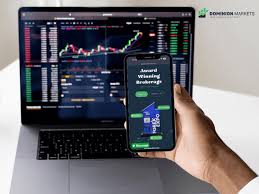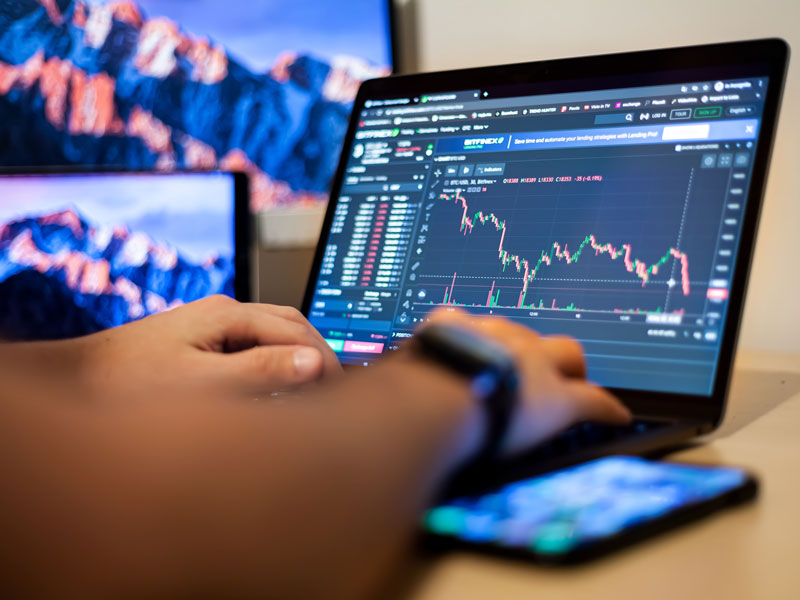
Online forex trading has revolutionized the way individuals invest and trade currencies around the globe. With the advent of technological advancements, accessing the foreign exchange market has never been easier. The rise of online forex trading South Africa Brokers and various online platforms has opened doors for both novice and experienced traders. This article delves into the intricacies of online forex trading, elaborating on what it is, how it works, and the best practices to adopt for success.
What is Forex Trading?
Forex trading, or foreign exchange trading, involves buying and selling currency pairs in a global marketplace. The objective is to speculate on the price movements of different currencies and make a profit. The forex market operates 24 hours a day, five days a week, making it one of the most accessible and liquid financial markets worldwide.
How Does Online Forex Trading Work?
Online forex trading works through forex brokers who facilitate transactions between buyers and sellers. These brokers provide access to trading platforms where currency pairs can be traded. Here’s a step-by-step guide to understanding how the process works:
- Choosing a Broker: Start by selecting a reliable forex broker that suits your trading needs. Look for one that is regulated, offers a user-friendly platform, and provides competitive spreads.
- Creating an Account: Once you’ve chosen a broker, you need to register for an account. Most brokers provide a demo account to practice trading without financial risk.
- Funding Your Account: After setting up your account, fund it through various payment methods supported by the broker, such as credit cards, bank transfers, or e-wallets.
- Placing Trades: With funds in your account, you can start trading. Choose a currency pair, analyze the market, and place an order to buy or sell based on your analysis.
- Monitoring Your Trades: Keep an eye on your open trades and market conditions. Use tools like stop-loss and take-profit orders to manage risk.
Key Terms in Forex Trading
Understanding key terms is crucial for anyone looking to navigate the forex market. Here are some essential terms:

- Currency Pair: The rate at which one currency can be exchanged for another, such as EUR/USD or GBP/JPY.
- Pip: The smallest price increment in a currency pair, often used to measure changes in value.
- Leverage: A tool that allows traders to control a larger position with a smaller amount of capital. While it increases the potential for profit, it also enhances the risk of loss.
- Spread: The difference between the bid and ask price of a currency pair, representing the broker’s profit.
Strategies for Successful Forex Trading
To succeed in forex trading, it’s essential to adopt proven strategies. Here are a few popular ones:
1. Day Trading
This strategy involves making multiple trades within a single day. Day traders capitalize on small price movements and typically close all positions before the market closes.
2. Swing Trading
Swing traders hold positions for several days to profit from expected upward or downward market shifts. This requires a keen sense of technical and fundamental analysis.
3. Position Trading
This long-term strategy involves holding positions for weeks, months, or even years. Position traders often look at larger economic trends and have a solid understanding of the economic factors influencing currency values.
Risk Management in Forex Trading
Risk management is a crucial aspect of forex trading. Understanding how to protect your capital can make a significant difference between success and failure. Here are some effective risk management techniques:
- Set a Trading Budget: Determine how much money you are willing to invest and stick to that amount.
- Use Stop-Loss Orders: A stop-loss order automatically closes a trade at a predetermined price level, limiting your losses.
- Limit Leverage: While leverage can magnify profits, it can also amplify losses. Use it judiciously.
- Diversify Your Portfolio: Avoid putting all your capital into one trade or currency pair. Diversifying can reduce risk significantly.
The Role of Technology in Forex Trading
Technology plays a pivotal role in online forex trading. Trading platforms equipped with advanced analytical tools, real-time market data, and automated trading options allow traders to make informed decisions quickly. Popular platforms include MetaTrader 4 (MT4), MetaTrader 5 (MT5), and cTrader, among others. Additionally, mobile trading apps enable traders to manage their accounts on the go.
Common Mistakes to Avoid in Forex Trading
Even experienced traders make mistakes. Being aware of common pitfalls can help you avoid costly errors:
- Overtrading: Trading too frequently can lead to burnout and losses. Stick to your strategy and only trade when conditions are favorable.
- Neglecting Analysis: Failing to conduct proper technical and fundamental analysis can result in poor trading decisions.
- Emotional Trading: Letting emotions dictate your trades can lead to impulsive decisions. Keep a clear mind and adhere to your trading plan.
- Ignoring Economic Indicators: Major economic events can significantly impact forex prices. Stay updated on economic calendars and news releases.
Conclusion
Online forex trading offers vast opportunities but also comes with inherent risks. Understanding the market, implementing sound strategies, and practicing effective risk management are keys to achieving success. As you embark on your trading journey, consider leveraging tools and platforms provided by reputable South Africa Brokers, and continuously refine your skills and knowledge.
With dedication and a disciplined approach, you can navigate the forex market and work towards achieving your investment goals.
